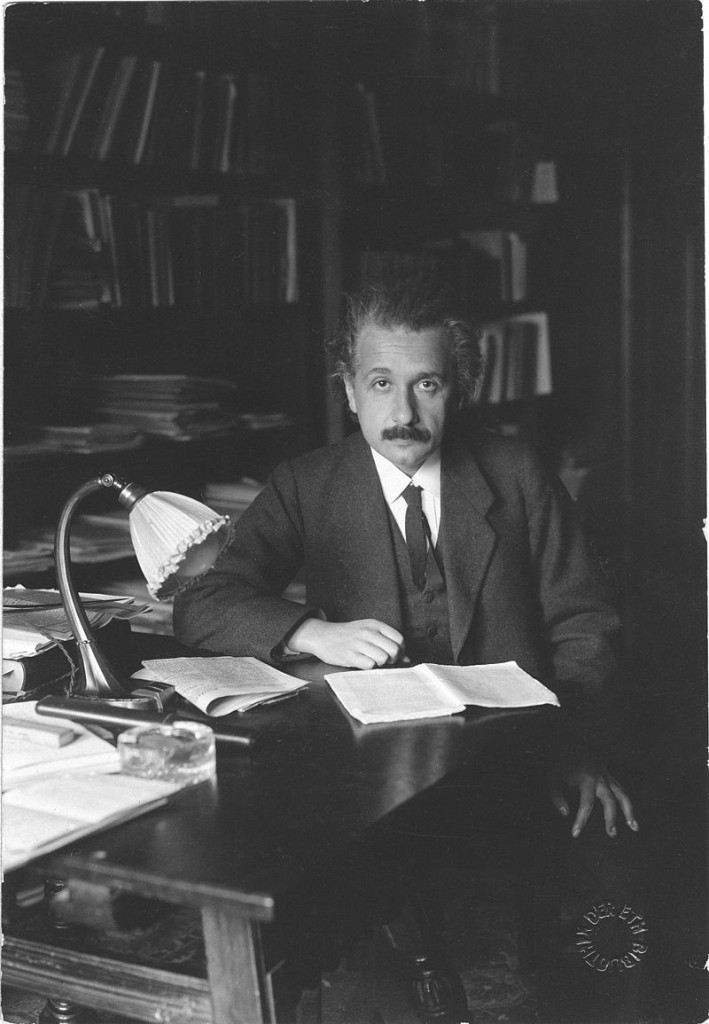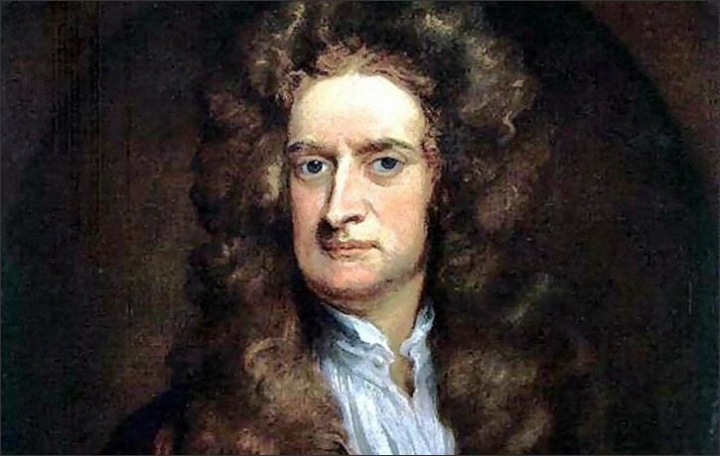‘Einstein, gravitation and the scientists of the Empire c. 1919: highlights reel’, Honest History, 16 February 2016
The recent announcement of the discovery of gravitational waves (described as the scientific discovery of the century) set Honest History in search of relevant references from a century ago – the era when Einstein made his original breakthroughs. There are a number of references under ‘Albert Einstein’ in the Australian papers (via Trove) from 1916 to 1920. There are also some nice nuggets in The Times (via the Times Digital Archive, sign up through the National Library of Australia), among them a long article from Einstein himself and a testy response from a leading light of the British science community, who still seemed to be holding a candle for Sir Isaac Newton. There is also a particular Australian connection.
 Einstein, Berlin 1920 (Wikimedia Commons)
Einstein, Berlin 1920 (Wikimedia Commons)
Einstein writes
On 28 November 1919, The Times printed an article by Einstein, headed ‘Einstein on his theory: time, space and gravitation: the Newtonian system’. It was translated, presumably from German, and ran to nearly 2000 words.
Einstein started with a reference to ‘the lamentable breach in the former international relations existing among men of science’ and ended by poking fun at the British confusion over whether he was ‘a Swiss Jew or a German man of science. In between, he gave a layperson’s explanation of theories in physics, including his own theory of relativity, both special and general. He then pointed out how relativity was incompatible with Galileo’s and Newton’s laws of motion, indicating ‘how a generalized theory of relativity must include the laws of gravitation’.
Einstein went on to consider some of the contradictions, referring to the new concept of ‘a warp in space’, how old concepts like ‘straight’ and ‘plane’ had lost their meaning, and that ‘the doctrine of space and time (kinematics) is no longer one of the absolute foundations of general physics’. He said the new theory of gravitation diverged greatly from Newton ‘with respect to its basal principle’ but it was difficult to detect differences in practical application.
One of the three cases of difference detected so far was ‘The deviation of light-rays in a gravitational field (confirmed by the [May 1919] English Solar Eclipse expedition)’. Einstein concluded on the ‘logical consistency’ of his theory but still recognised the foundational contribution of Newton to modern physics.
British science responds
Slightly sniffily, The Times leader writer, on the same page as Einstein’s article, while confessing not to follow the details and implications ‘with complete certainty’, recognised that the world of science had changed fundamentally, even if (this said with some relief) ‘the new conception will make little difference to the practical world’. The leader writer distanced him or herself from the contentions of a home-grown scientist, Professor Thomas Case, that basic conceptions in physics were little altered. The writer also noted that Einstein had not deigned to settle the question of whether he was a Swiss Jew or a German man of science.
Case had written (at length) to The Times the previous Saturday, 22 November, from his home in Weymouth. Case later became well-known as an opponent of Einstein and the controversy was getting under way in 1919. One can imagine Dons in Cambridge and Oxford reading Case’s letter closely as the short late autumn daylight retreated and the last leaves swirled in the breeze outside.
Case looked at what had come out of the English Solar Eclipse exhibition, considered some theoretical possibilities and opined that the challenge had been put out to ‘the learned world to decide whether Newton or Einstein is to be taken as the authority on space, time, motion, and the spatial universe’. He considered both men’s arguments and concluded firmly in favour of his fellow Britisher, Newton, although Einstein had sorted out some points of detail: ‘Professor Albert Einstein’s theory of space is deficient’.
 Sir Isaac Newton (Wikipedia)
Sir Isaac Newton (Wikipedia)
Meanwhile in Melbourne
Distinguished Australian historian, Humphrey McQueen, has during his career ranged widely over many strands of the discipline. (Search the Honest History site under ‘McQueen’ for some evidence of this.) In an article in The Age (Melbourne) in 2005, McQueen first described Albert Einstein’s early adventures demolishing the arcane concept of ‘aether’ before going on to look more broadly at the impact of Einstein on Australia. (The article included an extensive bibliography on aether and the reaction to Einstein in Australia.)
McQueen recorded that the 1919 eclipse, so assiduously studied on the other side of the world by Einstein and others, had also been followed closely in Australia, notably in The Argus newspaper in Melbourne. While The Argus‘s writers struggled to explain the concepts, interest persisted because Australia was the best site to view the next eclipse, scheduled for September 1922. Observations at this eclipse seemed to confirm that Einstein was on the right track, though a lecturer at the University of Melbourne, one CE Weatherburn, was not convinced, apparently playing a similar role in the Antipodes to that which Case had filled on the other side of the world.
Other Australian scientists and technical experts continued to pin their hopes on aether, long after Einstein had discredited it. CE Weatherburn had a street named after him in Canberra. It is just a few yards from Honest History’s bustling head office. Weatherburn’s shade may permit us to wonder, as we stroll along his street, whether his and Case’s attitudes to Einstein’s work were driven as much by Empire loyalties (and perhaps by attitudes to Jews) as by scientific evidence.


Leave a Reply
You must be logged in to post a comment.